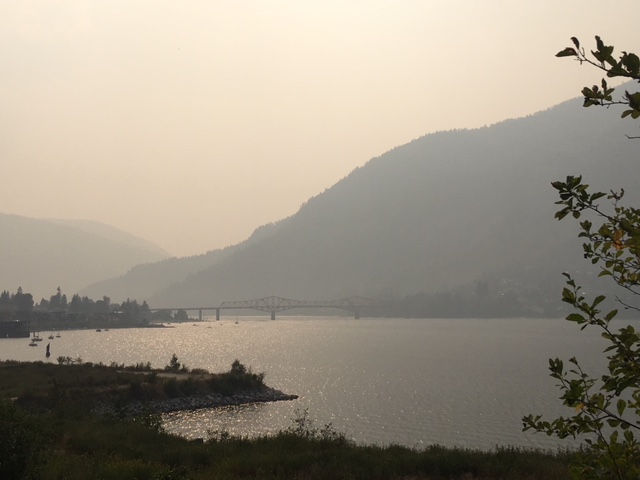Interior Health urges caution during poor air quality
Smoke from wildfires throughout BC has prompted Interior Health to once again issue a statement cautioning the public about the poor air quality.
Dr. Trevor Corneil, Chief Medical Health Officer & VP Population Health said in the statement that wildfires across the province have resulted in smoky skies and poor air quality for many Interior Health communities.
“During times of poor air quality, it’s important that individuals take steps to protect their health and wellbeing,” Corneil said. “Over the last week we have received questions from community members and local organizations about the health risks of strenuous outdoor activities.”
Corneil said in BC IH uses the Air Quality Health Index (AQHI) to make recommendations for modifying outdoor activity and/or avoiding smoke. This index takes into consideration levels of particulate matter, NO2, SO2, and other gases that are known to negatively impact lung capacity, heart function, and blood flow to muscles and brain tissue.
“Smoke affects everyone differently, but those most at risk include individuals with underlying medical conditions such as asthma, COPD, heart disease, or diabetes, and infants, the elderly and pregnant women,” he said.
“The best way to protect your health when skies are smoky is to reduce your exposure and seek cleaner air. When the AQHI is moderate or higher (equal to and/or above 4), Interior Health recommends that individuals consider reducing or avoiding strenuous activities, and follow therecommendations provided on the BC Air Quality website.”
The smoke has Environment Canada issuing Special Air Quality Statement to the four Western Provinces, including the western part of Ontario.
“Local smoke levels may vary based on wind direction and fire characteristics but, until a significant change in the provincial weather pattern occurs, widespread air quality improvements are not expected,” Environment Canada said.
Corneil said anyone experiencing clinical symptoms of any kind, contact your health care provider or local walk-in clinic. If your symptoms are severe, seek emergency medical attention.
For more information on precautions when air quality is poor visit www.interiorhealth.ca or contact HealthLink BC at 8-1-1.


























